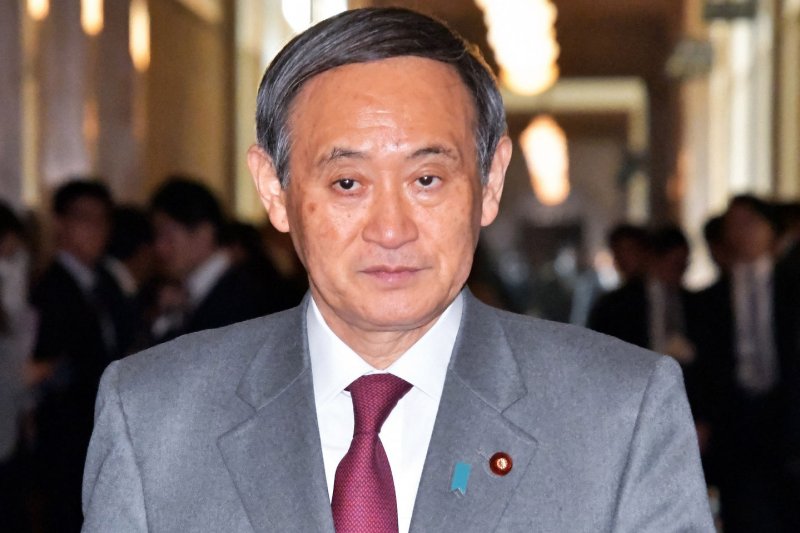Japan’s Chief Cabinet Secretary Yoshihide Suga has said Tokyo will take action if Japanese assets are seized in South Korea as part of wartime labor compensation. File Photo by Keizo Mori/UPI |
License Photo
Aug. 4 (UPI) -- Tensions are rising again between South Korea and Japan as a South Korean court order to seize a Japanese firm's assets went into effect Tuesday.
A South Korean Supreme Court decision in 2018, ordering Nippon Steel to provide reparations to four South Koreans forced into labor during World War II, went into effect after midnight Tuesday. The Japanese government has vowed to hit back with a stern response should Japanese assets based in Korea be seized, liquidated or sold, Kyodo News and Yonhap reported Tuesday.
Tokyo's Chief Cabinet Secretary Yoshihide Suga said Japan's response that would "protect the legitimate economic activities of Japanese companies" would include "a variety of options."
Japan maintains the court order of asset seizure is illegal because all issues were resolved with the signing of a bilateral treaty in 1965.
According to Japanese press reports, Tokyo could be considering policies that range from raising tariffs on South Korean goods, banning international wire transfers, tightening visa requirements for South Korean passport holders, financial sanctions and the seizure of South Korean assets in Japan.
South Korea's foreign ministry told reporters on Tuesday they are aware of the Japanese statement. The ministry said Seoul is reviewing a number of options in response to potential Japanese countermeasures.
South Korean foreign ministry spokesman Kim In-chul also said South Korea is continuing efforts to resolve issues via diplomatic channels. The issue of liquidating Japanese assets is "part of the judicial process," and the South Korean administration cannot intervene on a judicial matter, Kim suggested, according to South Korean news service News 1.
Last year, South Korea had not ruled out the termination of GSOMIA, a bilateral military sharing agreement with Tokyo. Seoul suspended the decision under U.S. pressure, but Kim said Seoul can terminate GSOMIA at any time, according to Yonhap.
On Tuesday, Suga said he would not comment on speculation Seoul could revisit GSOMIA termination. The pact has been an important source of intelligence gathering on North Korea for Tokyo.















